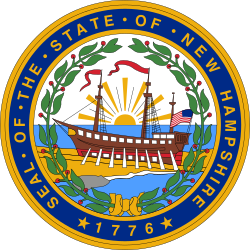Details
Incumbent Republican President George H. W. Bush, who had alienated a portion of conservatives by breaking his promise in 1988 for "No New Taxes" during his administration, defeated insurgent paleoconservative candidate Pat Buchanan. [1] [2] However, his 15.6% margin of victory [3] was unusually narrow for an incumbent president, and foreshadowed his weaknesses amongst the conservative GOP base. [4]
Bush would go on to receive the Republican nomination, winning every state, but lost in the general election to Arkansas Governor Bill Clinton.
This page is based on this
Wikipedia article Text is available under the
CC BY-SA 4.0 license; additional terms may apply.
Images, videos and audio are available under their respective licenses.




